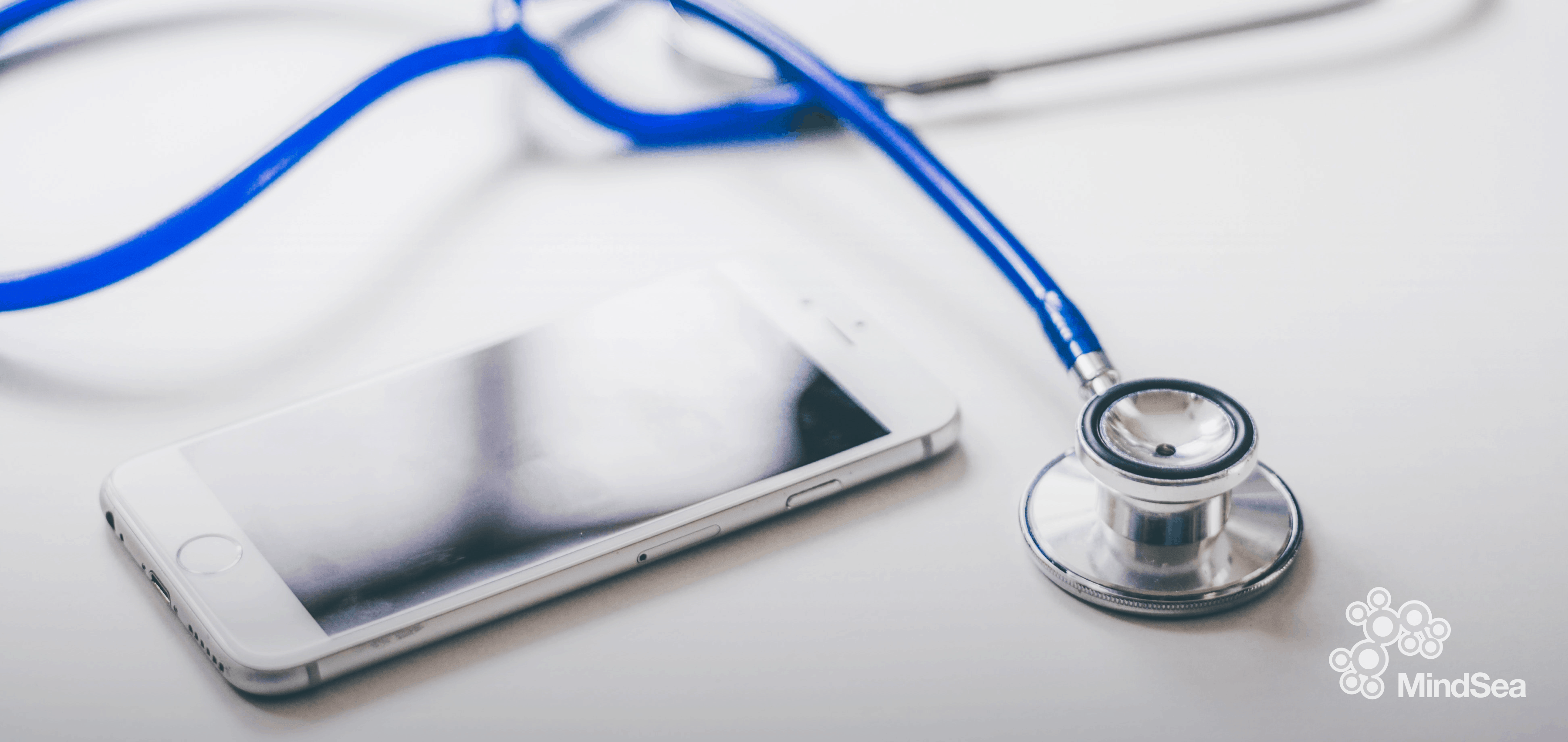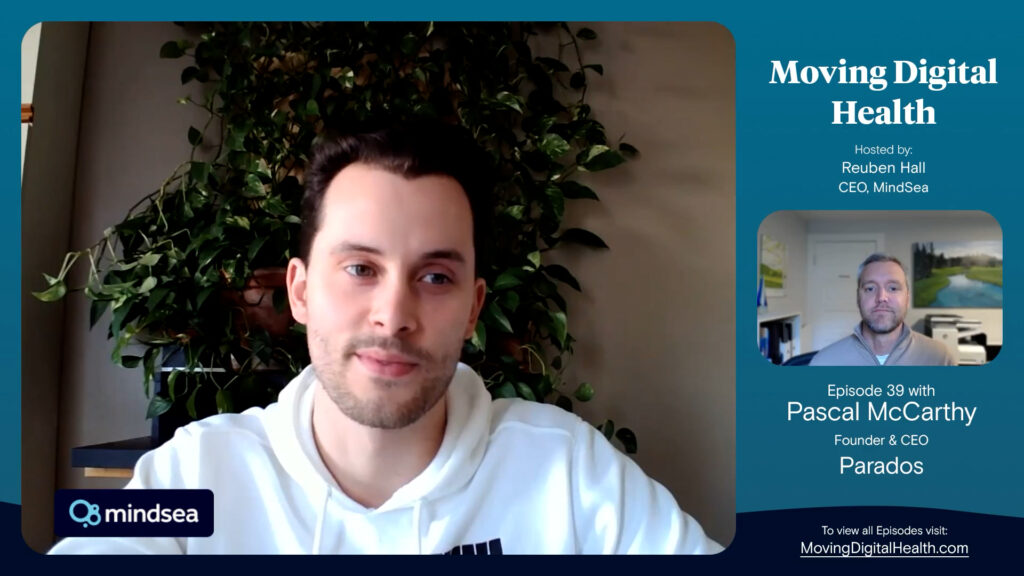According to The Physicians Foundation, 22% of healthcare providers know a physician who has committed suicide.
This brings to light a serious problem.
The survey also showed that 58% of physicians reported feeling burnout at some point in 2020; a staggering increase from 40% in 2018.
Burnout for physicians results in increased fatigue, depression, addiction, and worst of all, suicide.
To make things worse, the COVID-19 pandemic has increased rates of burnout due to the high demand of physicians in this unprecedented time.
At MindSea, we strongly believe that mobile apps help to improve lives and wellbeing. In this dire time, mobile apps can be relied upon to adhere to some of the biggest issues facing physicians today.
In this article, we will go over what physician burnout is and share some examples of how mobile apps can be used to alleviate burnout for physicians across the globe.
What Is Physician Burnout?
Known as an epidemic even before the COVID-19 pandemic, physician burnout is a combination of depersonalization, lack of efficacy, and exhaustion. This affects healthcare providers both emotionally and physically.
A metaphor that is widely used is referring to the body as battery operated.
Rest and recovery will recharge your batteries, whereas constant stress and overworking will drain your batteries. Over time, draining your batteries without dedicating enough time to charging them will result in burnout.
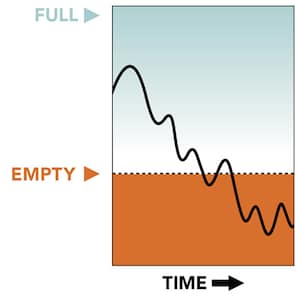
Physicians, especially during the COVID-19 pandemic, have an overwhelming amount of responsibility. If handling an average of 20 patients a day wasn’t enough, physicians are also expected to perform various administrative tasks that they report adds to their burnout.
Here’s a breakdown of tasks that specifically contribute to this truth:

With these in mind, we can see how mobile apps are a valuable tool to start helping manage a number of these tasks.
Let’s jump into some examples.
Simpler Health Data Management
Mobile apps allow patients to enter information as they are experiencing it, regardless of where they are. Patients have more control and physicians have more frequent, reliable, and accurate data to use in their assessments.
This allows patients to help physicians with data collection by sharing their data from home. It also gives patients autonomy and more power over their own health.
Seeing that the majority of physicians believe that bureaucratic work is the biggest added stressor, allowing patients to handle some of their health data management autonomously can take some of the load off of healthcare providers.
Teamscope is an app that manages health data efficiently and logically.
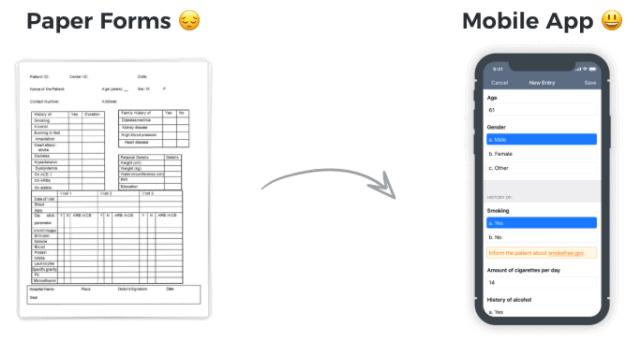
Patients can store data either online or offline and the information is automatically synced once an internet connection is available. This allows for easy data management, which physicians can use to track each patient’s unique case.
Stronger Doctor-Patient Relationship
Many physicians care a lot about their patients so it makes sense that during the COVID-19 pandemic, their care and worry would be magnified.
It doesn’t help that in many locations lockdowns are preventing the normal interaction between a physician and their patients.
For this reason, lots of physicians are shifting to telemedicine as their primary way to deliver healthcare. Simply put, telemedicine is the delivery of healthcare in an electronic fashion.
According to The Physicians Foundation, 12% of physicians in the U.S. have completely converted to telemedicine due to COVID-19 and 52% plan to increase their use of telemedicine.
Apps like Maple, give patients the opportunity to speak with physicians online and receive virtual healthcare without having to leave their home.
With so many people forced to stay in their homes, apps like these help physicians perform their work remotely and they also help save lives.
Logical Scheduling and Prevention of Overtime Hours
There is currently a nurse shortage in the U.S. and it is predicted that this will continue through 2025.
With turnover at an all-time high, many healthcare providers are forced to work extra hours on top of their regular scheduling — as if 12 hour shifts weren’t long enough.
Scheduling apps help to balance work hours within hospitals and clinics, which helps limit physician fatigue.
QGenda is a scheduling app that helps organizations book physicians efficiently and fairly; making sure that no one works too many hours in a short period of time.
https://www.youtube.com/watch?v=Z9PlGMyQ79U
It’s crucial that physicians get the time needed to recharge their batteries and apps like these are great at preventing excess working times.
Improved Clinical Diagnoses and Decision-Making
We’re human; mistakes happen. Physicians, however, can’t afford to make mistakes.
Did you know that medical errors are the third leading cause of death in the U.S?
Apps like Isabel can help with the diagnosis process, mitigating the risk of missed or improper diagnoses, and taking some of the stress off healthcare providers who have so many varying health cases to deal with everyday.
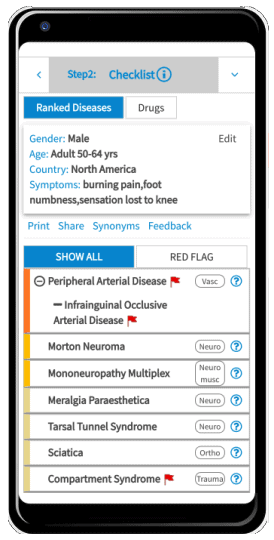
Speeding up the diagnostic process in a way that is accurate and reputable is a fantastic way to eliminate some common human errors.
Wrapping Up
The unfortunate truth behind burnout is that it’s affecting physicians from around the world in unfathomable ways. Times are tough, but mobile apps can be used to relieve some of the issues stemming from this epidemic.
Physicians are human, too. They earn the credit they get, but they also should be receiving the help they deserve.
At MindSea, we know that mobile health apps increase business value and improve lives. That’s why we’ve helped to create apps like PsychScope and ConstantHealth.
Read more about advancements in healthtech and how it continues to improve the way healthcare is delivered globally.
